Season’s greetings: December celebrations from around the world
Amid all the Christmas cheer we’re also thinking, joining in with and celebrating other religious and cultural festivities that take place in December. African American, Jewish, Buddhist and Pagan communities are among those marking important occasions as the year draws to a close.
Here, we mark five of the global occasions taking place this month and share insights into just some of the traditions associated with them.
St Nicholas Day – 6 December 2023
The feast of Saint Nicholas is marked in many European countries including Austria, Germany, Ukraine, the Netherlands, Belgium and France.
Visually, St Nicholas is often depicted to resemble the figure many would recognise as Father Christmas, or Santa Claus, however the real Sankt Nikolaus is thought to have been born around 245 C.E. in the city of Patara in what is now Turkey.
Very little historical evidence exists, but he is credited with several miracles and is celebrated each year on 6 December when he brings gifts for children on Nikolaustag.
Different countries and regions have different ways of celebrating the festival. For example, in Alsace, France, brioche-style treats called mannele are baked in the shape of a bishop and decorated with raisins or chocolate chips. Often, villages and communities will gather to sing songs, drink mulled wine and share giant mannele together as the wait for St Nicholas to arrive.
Read more about St Nicholas Day: National Days Calendar
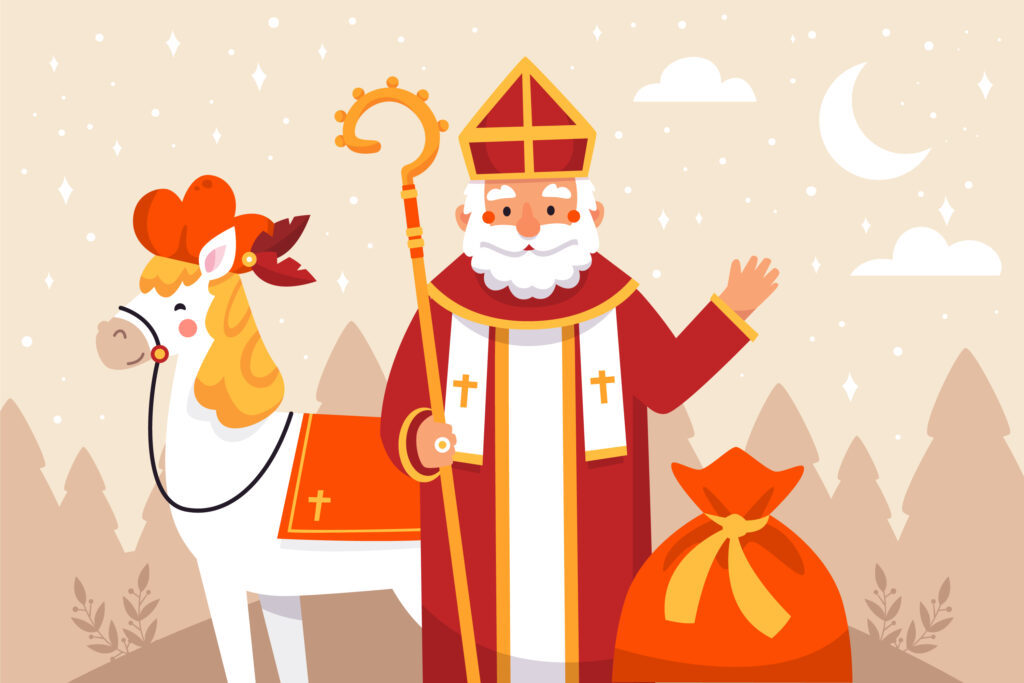
Chanukah – 7-15 December 2023
The exact dates of the Jewish festival of lights vary year on year, but the traditions remain a constant. Chanukah (of Hannukah) commemorates the rededication of the Second Temple after it was ransacked by King Antiochus of Syria. After recapturing the temple, the Maccabees (Jewish freedom fighters) searched for pure oil with which to light the Temple menorah, finding just enough to keep it burning for one day. A miracle occurred, and the oil kept the lights burning for eight whole days until more could be found.
Chanukah is celebrated by Jewish people around the world by lighting nine candles over the course of the eight-day festival and eating foods fried in oil such as doughnuts and potato latkes.
Chanukah gelt is given to children and games are played with a spinning top called a dreidel.
Read more about Chanukah traditions at: Chabad.org
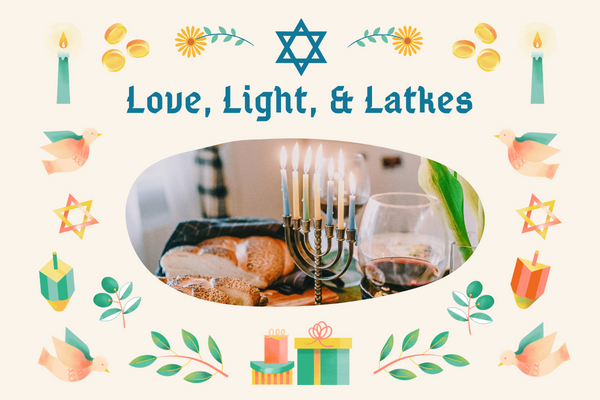
Bodhi Day – 8 December 2023
Two Bodhi Days are celebrated each year. One is a traditional Buddhist festival based on the lunar calendar and the other is known as the ‘Secular’ Bodhi Day, celebrated in much of the Western World and Japan.
Bodhi Day celebrates the day the Historic Buddha – Siddhartha Guatama, Sakyamuni Buddha – achieved enlightenment while sitting under a Bodhi tree in Bodh Gaya, Northern India in 596 BCE. It is often marked through meditation.
Read more about Bodhi Day: Re:Online
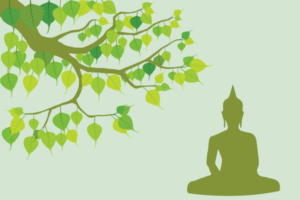
Winter Solstice – 21 December 2023
The Pagan Winter Solstice (also known as Yule) falls on the shortest day of the year and is one of the oldest winter celebrations in the world. Its roots have been traced back to Germany and Scandinavia and it was celebrated long before the arrival of Christianity.
It is traditionally a fire festival marking the return of the light as the days edge longer once more until the height of the Sun’s power, which is celebrated at the Summer Solstice in June.
The Winter Solstice takes the themes of rebirth, new year, hope and celebration of light.
It is celebrated in St Andrews by a special event for all in the community, regardless of faith. The University Chaplaincy has organised a lit labyrinth to be laid out in the Spanish Gardens – off The Scores – for people of all ages to walk around in silence and reflect on the year that has been. All are very welcome to attend.
Walk the path of light on the longest night: University of St Andrews Event information
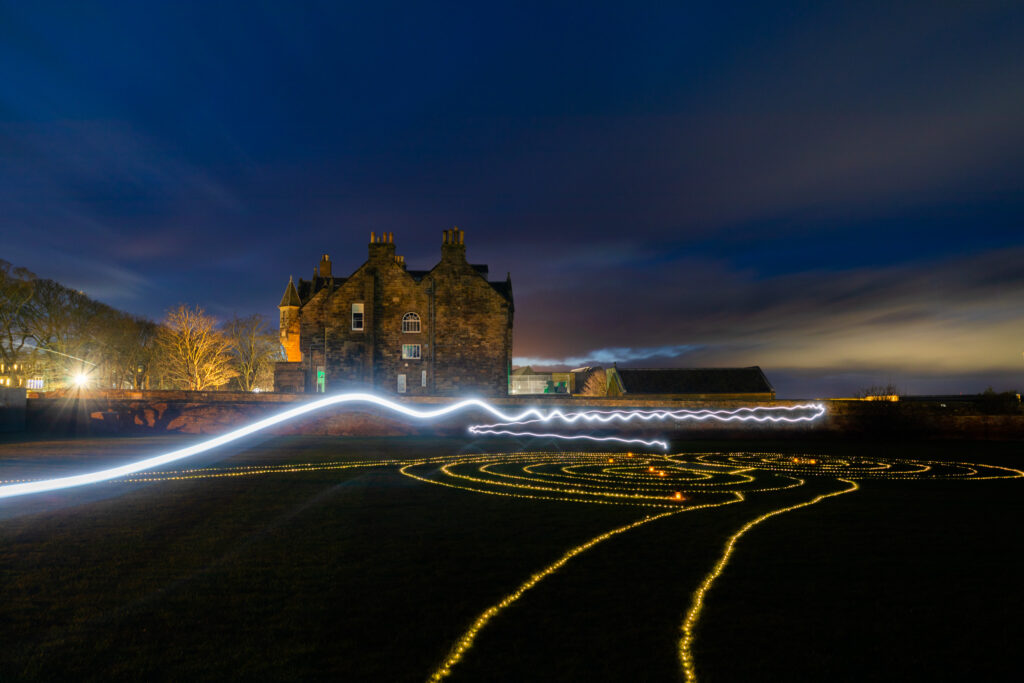
Kwanzaa – 26 December 2023 – 1 January 2024
Kwanzaa is an African American and Pan-African cultural holiday created by Black nationalist Maulana Karenga in 1966 as a means of uniting the African American community after the Watts Rebellion in a predominantly Black neighbourhood of Los Angeles.
The Watts Rebellion was an uprising against systemic racism after a white California highway patrol officer arrested a young Black man for drink driving. The events led to 34 deaths and more than 1,000 injuries.
There are seven principles aligned with Kwanzaa, as set by Karenga at its inception: unity; self-determination; collective responsibility; cooperative economics; purpose; creativity; and faith.
The name stems from the Swahili phrase “matunda ya kwanza” meaning “first fruits”. Celebrations typically draw on African storytelling and musical traditions.
Learn more about Kwanzaa: Official Kwanzaa Website
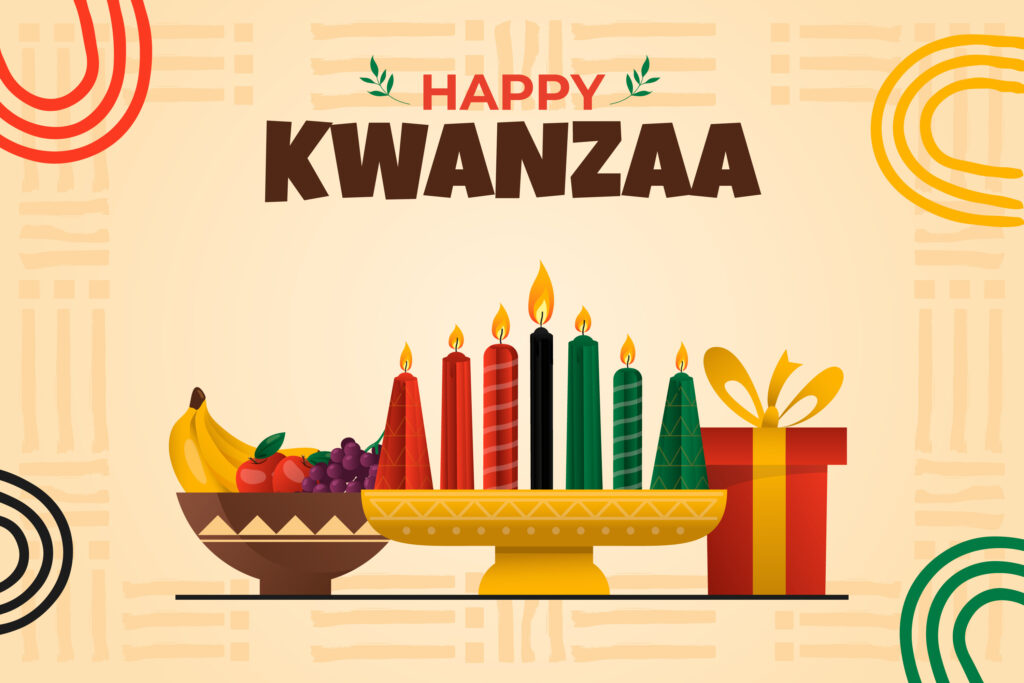
Words by Anna Stephenson